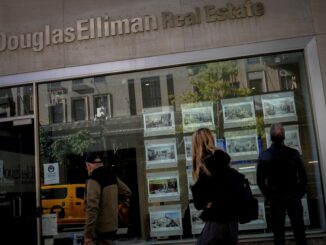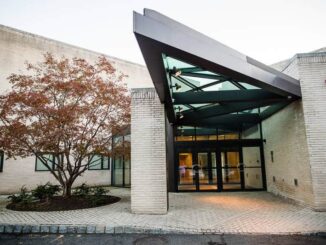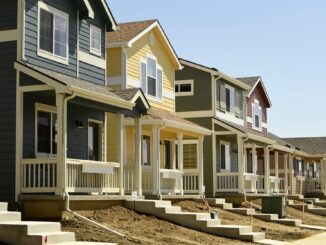
This week’s Hits and Misses considers the Green New Deal’s impact on home building, a proposed expansion of FHLBank membership, and a historic church’s demise.
The post Hits and Misses for the Real Estate Week of Nov. 6-10 appeared first on Weekly Real Estate News.
The Green New Deal’s impact on home builders, an FHLB expansion to include nonbanks, and a historic church’s upcoming date with a wrecking ball. From the wild and wooly world of real estate, here are the hits and misses for the real estate week of Nov. 6-10.
Hit: DOE, Oh Dear. Kudos to Alicia Huey, chairman of the National Association of Home Builders, for calling out the deleterious impact of current and proposed regulations from the U.S. Department of Energy (DOE) on the nation’s builders. In testimony delivered this week before the U.S. House Committee on Small Business, Huey faulted DOE’s Green New Deal agenda for creating increased costs and delays on the construction of much-needed affordable homes. “If we want to make a difference on energy efficiency, we must focus on existing housing, particularly older homes built before the introduction of modern energy codes,” said Huey, adding, “Let’s begin by fixing the broken regulatory process.”
Miss: Read the Fine Print. Pete Mills, senior vice president of residential policy and strategic industry engagement at the Mortgage Bankers Association, faulted the Federal Housing Finance Agency’s (FHFA) new review of the Federal Home Loan Bank (FHLB) System for failing to “engage in a more meaningful examination of the potential benefits of diversifying the FHLB system through the expansion of membership … The FHLBs would benefit from a membership base that better reflects today’s housing finance system, including independent mortgage banks (IMBs), who originate and service most mortgages, and mortgage REITs, which are important long-term holders of mortgages and mortgage-backed securities.” Actually, the FHFA did touch upon the subject by noting that an expansion of its membership can only be enacted by Congress, adding the agency “recommends that such entities be subject to membership requirements that currently apply to most members including: (1) inspection and regulation, (2) community support or service requirements, and (3) the requirement that 10% of their assets be in residential mortgage loans or an equivalent mission asset or activity requirement.” (It’s on page 63 of the FHFA’s 113-page report.)
Miss: Soak the Rich. The Land of Enchantment will not be that enchanting for financially successful home buyers seeking to purchase residential property in New Mexico’s capital city of Santa Fe. This week, voters overwhelmingly approved a new tax on home sales of over $1 million, with the new tax funds supposedly being used to pay for affordable housing endeavors. The city government estimated the new tax could generate roughly $6 million annually for its affordable housing trust fund – but that fund only awards money to developers who can secure matching funds from other government agencies and from nonprofits, a truly onerous process. The Associated Press reported the Santa Fe Association of Realtors has filed a lawsuit to block the tax, claiming the city violated state law in expanding its local excise tax beyond goods and services into real estate. Association President Drew Lamprich insisted the tax change “needs to go to the state level to adjust the state statutes, if that’s what the voters want.”
Miss: The Sacred and the Profane. Holy Spirit Church, a 142-year-old former Roman Catholic house of worship in Asbury Park, New Jersey, will be demolished in the next six months by a developer who plans to use the property to build six homes. The church was once the center of the city’s Catholic community, but over time dwindling attendance and parish consolidations resulted in a grand structure without a vibrant congregation. The church’s final service was held in 2021, and since then the city and the developer were engaged in litigation over the property’s fate – an initial proposal involved maintaining the church building and renovating its interior for housing units. Attorney Thomas De Seno, who attempted to save the grand old church, lamented that Asbury Park had no ordinance in place for historic preservation. “We look back at prior generations for losing (historic buildings),” De Seno told the Asbury Park Press. “People are going to look at us the same way, including myself. I didn’t save that church, so it is on me too.”
Miss: Housing, Hello? You know that priorities are awry when time was wasted in this week’s Republican presidential debate with wisecracks about Nikki Haley’s shoes while no one acknowledged the housing market is not in the best of health. It is no surprise that the NBC News moderators avoided questions about housing – the network has been running interference for President Biden since he took office, so any acknowledgment of housing problems would reflect badly on his administration. At the same time, none of the five candidates on the stage – nor GOP frontrunner former President Donald Trump, off-stage – have put forth any plan to address the multiple problems facing the housing market. While attention needs to be given to the boiling overseas issues regarding Israel-Hamas, Ukraine and China, domestic concerns need to be addressed, too. Perhaps it is naïve, but let’s hope the next debate will offer an in-depth discussion on housing.



